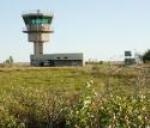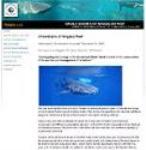Add Your Business

Health & Ecological Risk Assessments
Risk assessment is a scientific methodology endorsed in Australia and internationally to manage site contamination. Historically, significant financial resources have been spent on trying to clean up soil and groundwater to its original condition. It subsequently became evident that it was often not technologically or financially realistic to attain such goals. Risk assessment was developed as an alternative approach to manage site contamination.
Risk assessment can be a qualitative and/or quantitative estimate of human health and/or ecological risks presented by site contamination. They can be complex, and much care is needed to ensure fate and transport models accurately represent site conditions, toxicity data is up to date, and exposure parameters are in accordance with endorsed protocols. Considering the above complexity it is paramount that Risk Assessors are experienced in many fields including, but not limited to geology, hydrogeology, toxicology, chemistry and biology. Reporting of risk assessments reporting needs to be transparent as there are numerous uncertainties associated with fate and transport models, toxicological data, and data collected in the field.
Risk assessment has enormous advantages for site owners with contamination. In many cases the contamination may be easy to remove off site, and often this is the most effective, economical approach. Risk assessment is most useful when there is extensive soil and/or groundwater contamination. In such instances risk assessment can significantly reduce cleanup costs by deriving less stringent, site specific clean up goals.
Risk assessment can be a qualitative and/or quantitative estimate of human health and/or ecological risks presented by site contamination. They can be complex, and much care is needed to ensure fate and transport models accurately represent site conditions, toxicity data is up to date, and exposure parameters are in accordance with endorsed protocols. Considering the above complexity it is paramount that Risk Assessors are experienced in many fields including, but not limited to geology, hydrogeology, toxicology, chemistry and biology. Reporting of risk assessments reporting needs to be transparent as there are numerous uncertainties associated with fate and transport models, toxicological data, and data collected in the field.
Risk assessment has enormous advantages for site owners with contamination. In many cases the contamination may be easy to remove off site, and often this is the most effective, economical approach. Risk assessment is most useful when there is extensive soil and/or groundwater contamination. In such instances risk assessment can significantly reduce cleanup costs by deriving less stringent, site specific clean up goals.












